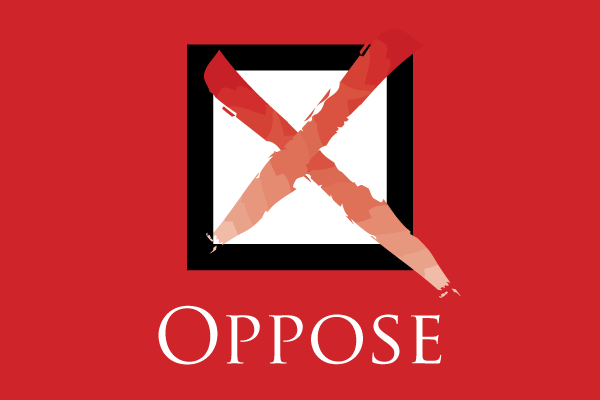
A California Chamber of Commerce-opposed bill that could ban California sales of many personal care products is awaiting consideration by the Assembly.
SB 1249 (Galgiani; D-Stockton) jeopardizes hundreds of thousands of California manufacturing, distribution and retail jobs by effectively banning for sale any personal care product whose ingredient was tested on animals on or after January 1, 2020 anywhere in the world, by anyone, at any time, and for any purpose.
As many cosmetic products contain active ingredients that are required by state, federal and international law to be animal tested for purposes of demonstrating human health and safety, SB 1249 severely handicaps American cosmetic companies that have no control over animal testing done on shared ingredients for purposes unrelated to cosmetics.
The original intent of the bill was to align California with current European Union (EU) regulations banning animal testing on cosmetic products or ingredients, which would have effectively made California the leading state with the toughest animal testing ban in the country.
As drafted, however, SB 1249 forces retailers to pull any personal care product, not just cosmetics, off the shelves if even one ingredient is tested on animals anywhere in the world, by any other industry, at any time, for any reason.
Products Affected
The coalition of SB 1249 opponents, including the CalChamber, is pointing out that SB 1249 could eliminate thousands of personal care products on which Californians rely each day, and prevent California consumers from having access to newer, safer or more affordable personal care products.
The SB 1249 ban would apply to a variety of products, including: sunscreen, lip balm with sunscreen, anti-cavity toothpaste, mouthwash, anti-dandruff shampoo, acne products, soap, antiperspirant, deodorant, cosmetics, hair color, nail products, under eye cream, moisturizer, body cream, body cleansers, face wash.
Alternative Tests in Use
Since the 1980s, the personal care products industry has invested hundreds of millions of dollars to develop scientifically valid alternative safety test methods.
Companies now consider animal testing only when mandated by government bodies or, in rare cases, for safety evaluations of new ingredients when no viable alternative is available.
Ignores Science
The State of California, U.S. Food and Drug Administration, and foreign governments require animal testing in limited instances when science dictates it is necessary to protect consumers, worker safety and the environment, and determine if ingredients found in food, over-the-counter medications and lifesaving treatments are safe for human use.
It is illogical for California to require animal testing on ingredients and then ban these ingredients from being used in California.
Threatens Trade
The EU regulation recognizes that some international laws mandate animal testing and does not ban for sale in the EU a product subject to such requirements. However, the EU regulation does not allow companies to use that data to substantiate the health and safety of a product—companies still must use alternative test methods in the EU.
SB 1249, however, bans for sale in California any personal care product that has been tested due to state, federal or international legal requirements. Moreover, SB 1249 could have wider trade implications as it would appear to prohibit imports into California from other countries where animal testing may have occurred. SB 1249 could be in violation of U.S. obligations under the World Trade Organization, including the Agreement on Technical Barriers to Trade.
SB 1249 also plays right into the hands of China’s protectionist trade policies by incentivizing U.S. companies to move their U.S.-based cosmetic manufacturing to China. That is because China’s animal testing regulations allow domestically located manufacturers to avoid its animal testing import laws for some cosmetic products, but require animal testing for all imported cosmetic products.
Therefore, SB 1249 will force U.S.-based cosmetic manufacturers that want to sell in California and China to move high-paying California jobs into China to avoid SB 1249’s product ban.
The coalition opposing SB 1249, including CalChamber, remains committed to an ongoing dialogue with the author’s office and aligning the bill with the provisions found in the EU regulation.



